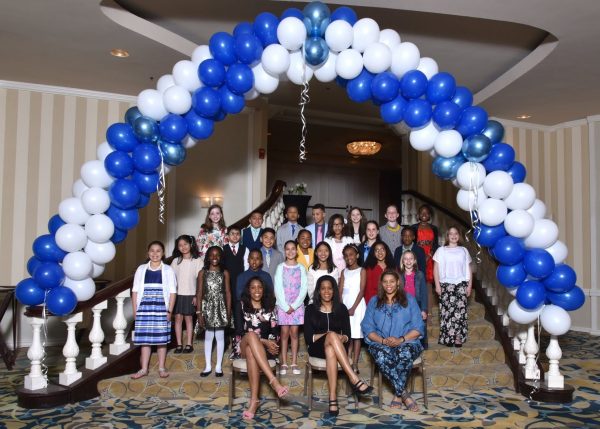COVID-19 affects students’ home lives, access to resources
May 5, 2020
Contributors: staff writers Cheyenne Edwards & Tamara Guy, feature facilitator Eli Marshall
For some students at ETHS, the outbreak of COVID-19 has shifted both family dynamics and stability at home, and for students with parents on the frontlines, this has been a time of potential uncertainty and fear.
Despite the number of unemployment claims in Illinois climbing every week, there are still many workers who have been deemed essential, and continue to work, according to the Chicago Tribune.
“My mom works for the State of Illinois, and she’s an essential worker. She’s a social worker,” senior Hannah Bambic says. “I miss human contact besides my mom, and I miss my friends. I feel very alone, just because I haven’t had other people besides my mom.”
Additionally, despite outbreaks of COVID-19 in many homeless shelters across Illinois, the Chicago Department of Public Health has yet to test many communal shelters, as reported by the Chicago Tribune. The massive outbreaks have led many advocates to conclude that it is necessary to use whatever housing stock is currently available to decrease the potential spread of the virus to both workers and members of the shelters.
“My mom was working with the homeless so she ended up having to go to work every day,” junior Jahnese Adams says. “They made sure that the workers were safe generally, but my mom had the possibility of being exposed a lot.”
For other students, quarantine has meant that there are more responsibilities than normal, such as taking care of relatives.
“My nieces are moving in, so while they’re here I have to be more responsible for their wellbeing,” Adams says. “It has become a lot more overwhelming to be around family. I am really introverted so I really like my alone time— I don’t get much of that now.”
For some students, additional responsibilities have changed their roles in their families.
“I feel like I’ve become a maid,” junior Olamide Thomas says. “It makes me angrier because on top of my school work, I have a lot of housework and because I’m the oldest child culturally speaking I feel like I’m being a mom rather than being a kid.”
In other circumstances, the ability to safely quarantine and do school work from home is shaped by students’ socioeconomic circumstances. For students without consistent access to resources that are typically provided by school, such as steady internet access and quiet learning spaces, navigating the stay-at-home order can become an even bigger challenge.
The “homework gap,” or the divide among students lacking digital resources and students with access to these tools, has increased dramatically since nationwide school closures began, Pew Research Center reported in their recent findings. Approximately 35 percent of families with an annual income below thirty thousand dollars don’t have access to high speed internet, compared to just six percent of families with an annual income of seventy five thousand dollars or higher. 36.5 percent of students enrolled at ETHS qualify for free and reduced lunch, according to the Illinois Report Card.
While some students have access to the necessary resources to do their schoolwork, an ever-changing home life can make it more difficult to complete the work.
“My day-to-day life has changed drastically, mostly because I still haven’t gotten myself on a specific routine for how to do schoolwork, so it’s me working sporadically throughout the day,” Adams says.
Despite the challenges that come with quarantine and stay-at-home orders, some students have found ways to cope, whether that be by talking to friends or picking up new hobbies.
“I’ve been going outside often, calling my friends more often and keeping in touch with people at home,” sophomore Ben Luebkeman says.
Others have found it meaningful to spend more time with their families.
“Things might be a little more tense now that we’re always around each other,” junior Becky Arden says. “[But] I do really value the walks I go on with my dad around my neighborhood.”



















